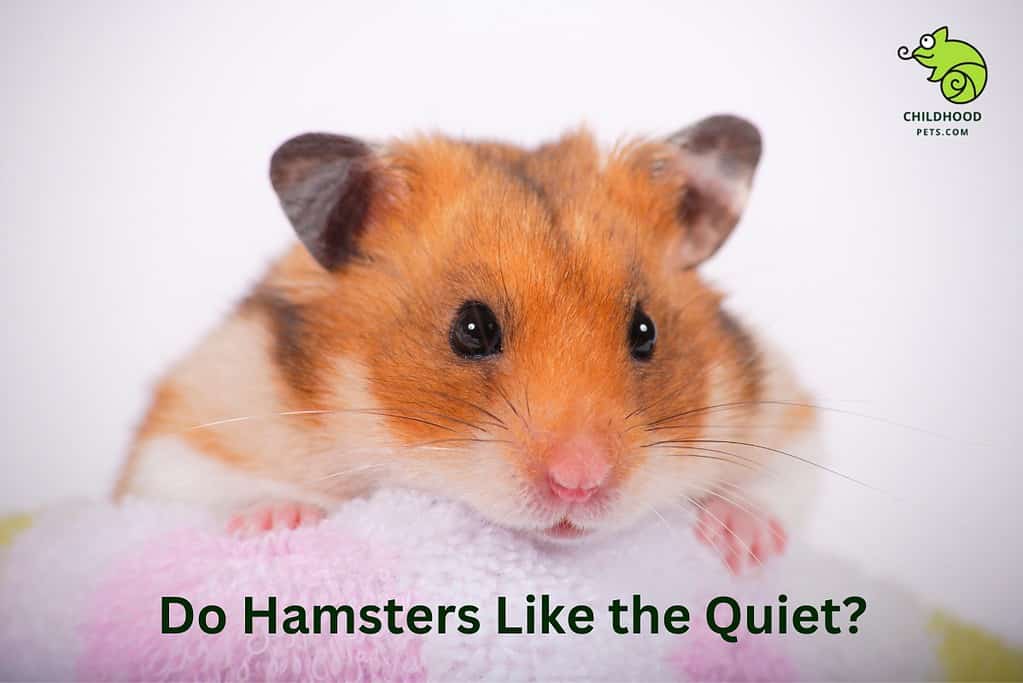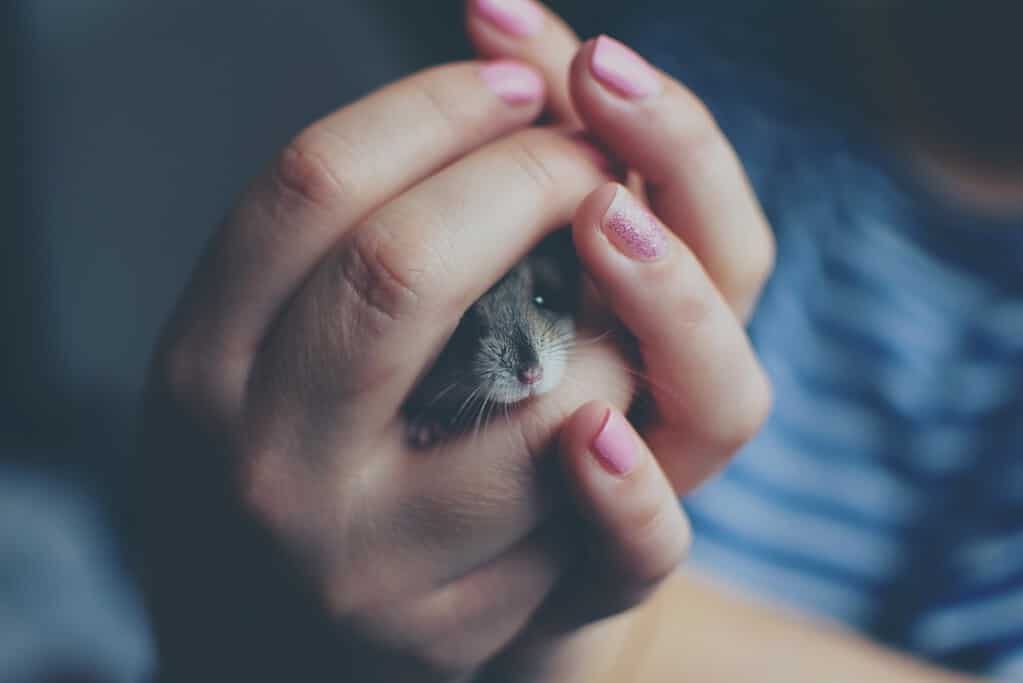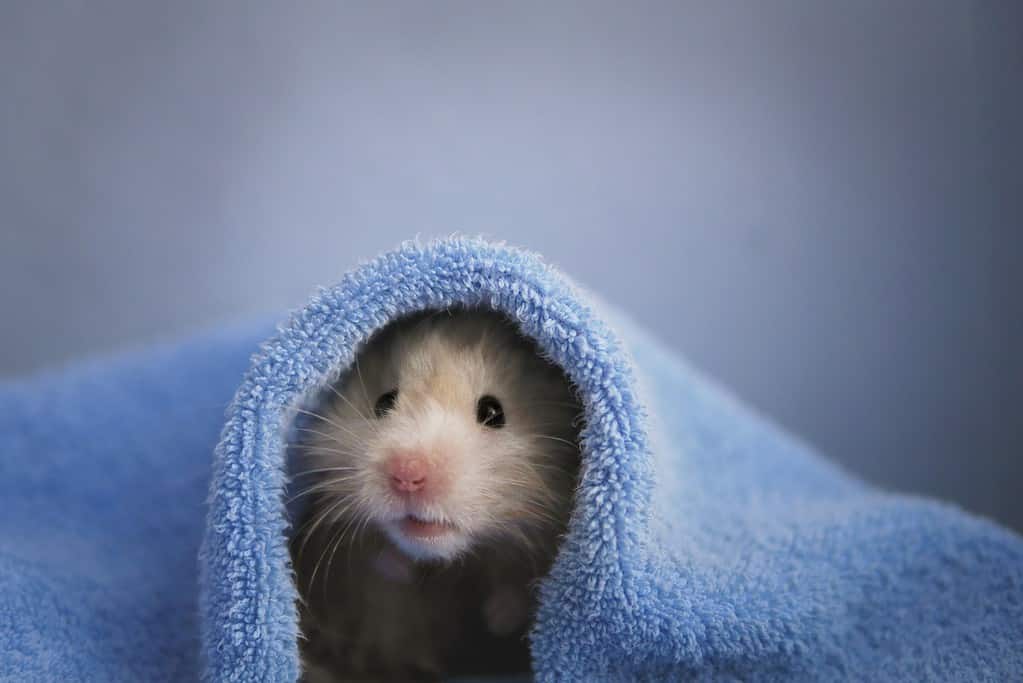
Hamsters are small and energetic creatures that have become popular pets worldwide due to their curious nature and ease of care. They’re typically low-maintenance and can be a source of joy for their owners. But do hamsters like the quiet?
As a general rule, hamsters prefer quiet and peaceful environments. They do not like being startled or overwhelmed by noise, which can lead to stress and anxiety. Hamsters are most active at night when it is usually quieter than during the day.
In this article, we will discuss whether hamsters like quiet, signs of hamsters like quiet, and other essential things to remember about keeping your hamster safe and comfortable.
7 Signs That Show Hamsters Like Quiet
Hamsters typically like the quiet. They may not vocalize like cats, dogs, or humans but can be noise-sensitive. Hamsters don’t necessarily prefer complete silence but need a peaceful and quiet house to feel safe and relaxed. As crepuscular animals are most active during twilight hours, hamsters tend to be more relaxed in quieter environments and easily startled by loud noises.
Here are some signs that your hamster likes the quiet:
1. Hiding in Their Burrow
Burrowing is an instinct that provides a safe space for the hamsters to hide away from potential threats, and this behavior is most common in areas with too much noise. They burrow into the ground or hide in small spaces between furniture or inside tunnels and tubes. If your hamster spends most of its time buried in its bedding, it may be a sign that they’re seeking quiet to relax.
2. Lethargy
Hamsters overstimulated by too much noise may become lethargic and uninterested in activities they usually enjoy, such as running on the wheel or exploring their environment.
They may not actively seek your attention anymore, indicating that they seek a calmer environment with less noise or distraction. Hamsters also become skittish or hyperactive, and they likely need a break from all the noise.
3. Increased Aggression

If your hamster begins exhibiting signs of aggression such as biting or growling as If you’re putting your hand in their cage and grinding it or being aggressive towards you, this could show that they’re feeling overwhelmed by their environment and would benefit from some peace.
4. Lack of Appetite
Hamsters are usually enthusiastic eaters. Still, when stressed or overwhelmed by too much sound and activity, they may refuse to eat or hide food around their enclosure. This can be a sign that they want some downtime and quietness. Keeping things quiet and calm can help entice them to start eating again.
5. Avoidance

Hamsters who are comfortable with their environment will often respond positively toward it when petting and handling it. If you notice your hamster becoming agitated by your touch or sudden movements, it may not feel safe or secure in its current environment.
A quiet atmosphere for your furry friend can ensure they feel relaxed and secure in their home. Be mindful of any noises around them and limit contact if they appear anxious.
6. Unusual Behaviors
If your hamster starts exhibiting unusual behaviors such as tail-biting, running in a circle, bar or fur chewing, and acting nervous, this could be a sign of distress due to overstimulation by too much noise.Try to make the environment quieter and give your hamster time to relax.
7. Pacing
Pacing down and up and forth along the cage is another sign of stress and anxiety. Loud noises, such as those from other pets or people talking, can cause your little pet to become distressed. If your hamster is pacing more than usual, it may be due to a loud environment.
Keeping the atmosphere around them as peaceful as possible is best. Ensure you have no loud music or televisions playing in the same room, and try to move slowly around the cage when interacting with your pet. Also, ensure you provide plenty of noise-reducing items like blankets and towels for your pet to hide under if needed.
How to Create a Quiet Environment for Hamsters?

Hamsters are naturally curious and social animals who enjoy exploring the world around them. They also need a calm and peaceful environment to stay healthy and happy. Creating a comfortable and relaxed atmosphere for your hamster is essential for its well-being.
Here are some tips for providing them with comfortable environments;
- One of the excellent ways to create a relaxing atmosphere for your hamster is by providing a quiet space away from loud noises such as children, music, or television.
- A pleasant cage is significant for staying happy and at ease for hamsters. Make sure that you keep their crate away from drafts and direct sunlight, as these can disrupt their sleep schedule. Hamsters may become stressed if exposed to sudden changes in temperature or humidity, so ensure their environment has consistent conditions.
- Regarding toys inside the cage, try leaving your hamster with a manageable number of toys.
- It is also essential to ensure your hamster has plenty of places to hide or sleep in its cage. Providing bedding such as shredded paper will help create comfortable spots for them to snuggle up when it’s time for a nap. You can place some hiding spaces around their cages for privacy and relaxation.
What Are the Signs a Hamster Enjoying the Quiet?
Although your pet might not be able to tell you exactly how much they love the peaceful atmosphere of their home, some signs can indicate when they are enjoying the quiet.
Actively Exploring
If you notice your hamster out of its cage exploring the room more often than usual, this could mean they are enjoying the peace in its environment. So, if hamsters like to explore, this is a good sign that your furry friend is feeling at ease.
Curling Up For Naps
Hamsters love to take little naps throughout the day, but if your hamster is curled up more than usual, it could indicate that they are content with the calm atmosphere.
Eating Peacefully
Hamsters usually eat throughout the day. If you notice your hamster eating more than usual and enjoying their food, it could indicate that they are content and comfortable with its surroundings.
How to Keep Hamsters Quiet at Night?

As hamsters are nocturnal creatures, they primarily do all of their activity at night, which can be disruptive when trying to get a good sleep. If you want to keep your hamster quiet at night, here are a few ways to do that:
- Try to provide them with plenty of bedding in the cage, which helps muffle sound from the crate. You can place a blanket under the cage for additional soundproofing.
- Make sure they get plenty of exercise during the day. If your hamster has ample opportunities to run, climb, and explore during the day, it will tire them out so that they are less active and quieter at night.
- Secure any wheels, toys, or tubes to prevent vibrations from causing excessive sound.
- Place the cage on a steady surface in your home, not something that will shake or move around.
Wrapping Up
Hamsters enjoy peaceful environments with plenty of space to roam around without feeling overwhelmed or stressed. Observing their behavior and providing the right environment for their needs is crucial. Your pet will likely appreciate the calm atmosphere of a quiet house necessary for a happy and healthy hamster.
Have you ever owned a hamster? What tips do you have for beginning hamster owners? Let us know in the comments below!
Frequently Asked Questions
Do hamsters need quiet to sleep?
Yes, hamsters need a quiet space to sleep during the day. If their living environment is too loud and crowded, it can lead to stress and sickness for your furry friend. Therefore, provide them with a separate room or area away from noisy activities where they can enjoy peaceful rest.
Do hamsters like to live alone?
Yes, hamsters like to live alone. These solitary animals feel most comfortable on their own and are usually reluctant to share their space with another animal, even if it’s of the same species.
Does TV bother hamsters?
Hamsters have empathetic hearing and are susceptible to ultrasonic sounds that can emit from household electronics such as TVs or computers. These ultrasonic sounds can cause discomfort for your hamster, leading to stress and disruption of their sleep pattern. It is best to keep its cage in a room without any electronic devices that could emit these high-frequency noises.
